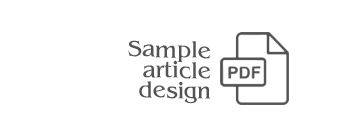Review process order
Articles recommended and approved by reviewers and members of the editorial board based on the review results are allowed to be published in the scientific journal "Bulletin of Dulaty University". Scientific articles are reviewed in two stages.
At the first stage, the editorial board sends the scientific article submitted by the author to 1-2 independent scientists for review, whose research areas correspond to the subject and content of the article.
The reviewer prepares the review according to the form provided by the editorial board. The review reflects the relevance, value and significance of the research results, as well as comments (if any) and recommendations for publication (or rejection) of the article. The review is typed on a computer with a volume of text on 1-2 sheets. indicating the surname, initials, position and academic degree of the reviewer. The reviewer's review of a scientific article should not exceed 10 days. The finished review is sent by the reviewer to the editorial specialist via the journal's website.
After passing the review, the scientific article for which positive reviews (recommendations) have been received is sent to the next stage of verification. If defects are found, the article is returned to the author for correction. If the reviewer's recommendation is negative, the article will not be accepted for publication. This decision is notified to the author of the article in writing, signed by the editor-in-chief.
At the second stage, an article that has been reviewed is reviewed by one of the editorial board members to verify its compliance with the requirements of the journal and obtain consent (or not consent) for publication. If a member of the editorial board has a negative opinion, the article is returned to the author for revision or rejected. The duration of the review of a scientific article by a member of the editorial board is no more than 5 days.
An article that has passed a full review cycle and has been approved for publication is accepted for inclusion in the next issue of the journal.
The reviewers are domestic experts who are not members of the editorial board of the journal, as well as foreign scientists who have publications in publications included in the international databases Scopus and Web of Science (Russia h-6 and Lithuania h-1).
The article is sent for a two-way "blind" review.
For information: by the end of 2024, the share of recalled articles without passing an editorial review was 30%.

